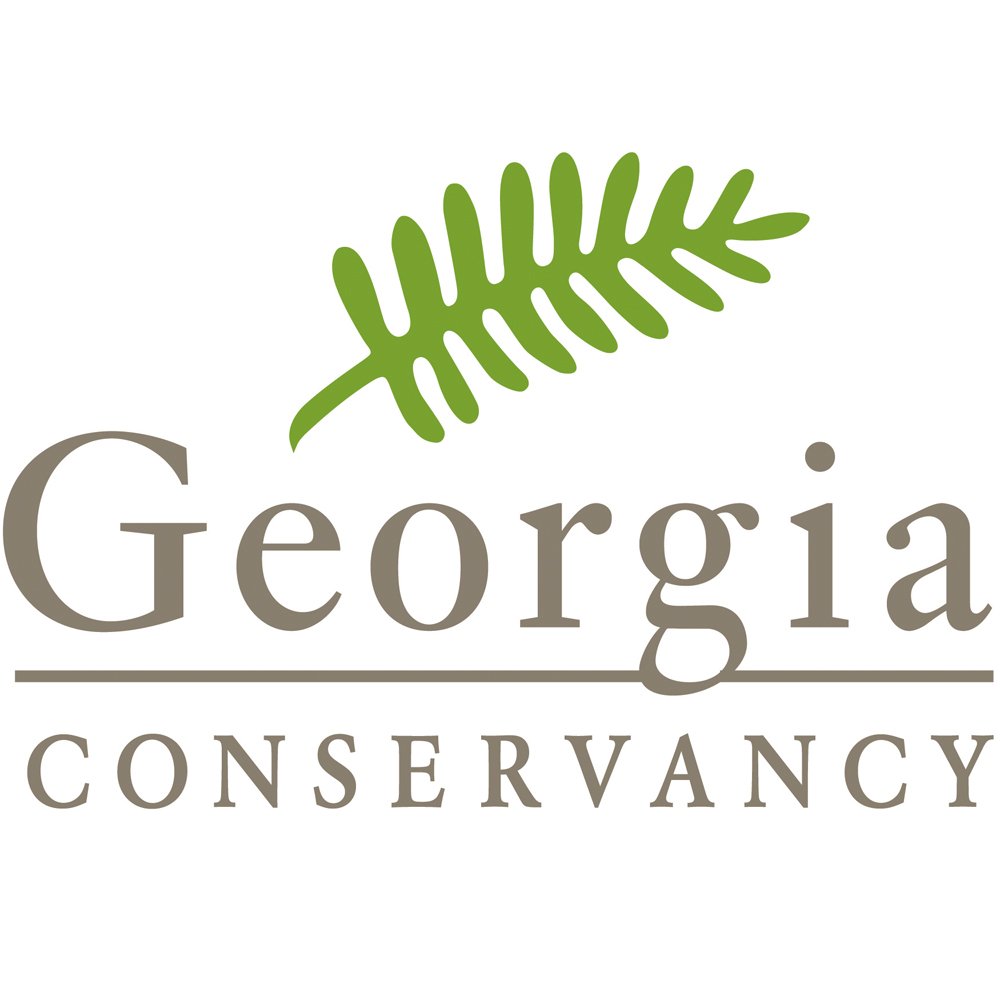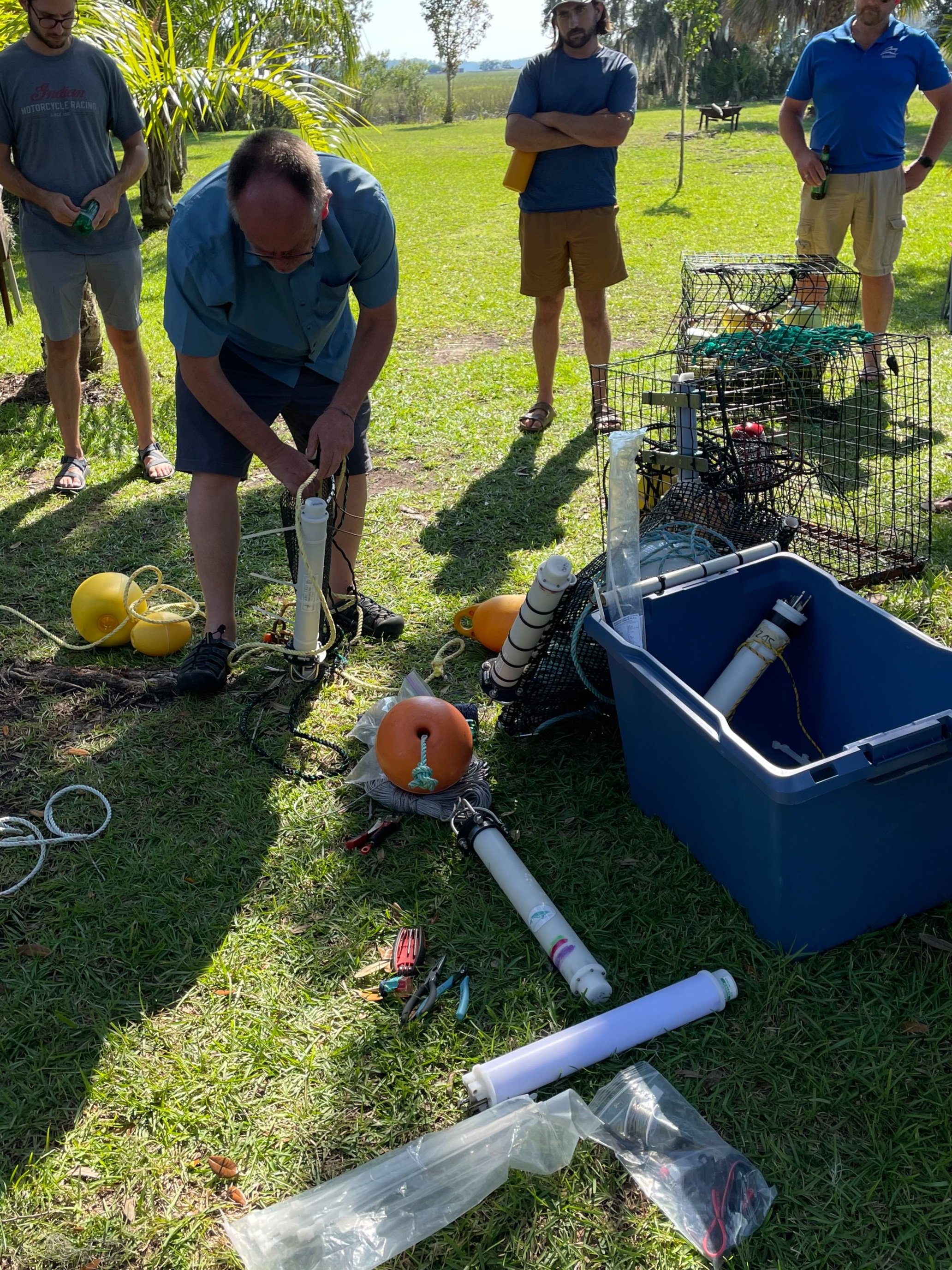Click here to support Georgia Conservancy’s efforts to protect the North Atlantic right whale and promote a sustainable black sea bass fishery. Thank you!
History Meets Innovation for the Black Sea Bass Fishery
Technologies for sustainably-caught black seas bass and creative ways to bring the harvest to market
Along the coast in McIntosh and Glynn counties, black sea bass -- a relatively unknown fish elsewhere -- is a bit of a local legend. Black sea bass is populous, a great catch, and a favored fishing pastime for long-time locals. From family histories to nostalgic memories, stories about black sea bass are everywhere.
Commercially, however, efforts to farm black sea bass have struggled to take off. Much of it has to do with economics and the difficulties associated with getting permits. In the past, an operation known as the “Christmas fishery” (named after when black sea bass was most plentiful) attempted to scale up sales, but it just wasn’t as profitable as other catches.
Black Sea Bass at Gray’s REEF NATIONAL MARINE Sanctuary by NOAA
Environmentally, there have been serious concerns with the gear associated with pot fishing, a popular technique to catch black sea bass. Ropes used to haul in pots or connect them to buoys can often become entangled with the critically endangered North Atlantic right whale during the mammal’s winter calving season along the Georgia coast.
During the Summer of 2022, the Georgia Conservancy commenced a two-year research project funded by the University of Georgia Marine Extension’s Sea Grant program and in partnership with Sustainable Seas Technologies, Inc to study the innovation of on-demand traps, also known as “ropeless fishing gear”, to encourage sustainably-caught black sea bass. On-demand traps are a key solution to eliminating whale deaths caused by entanglement. A complete transition to on-demand traps could potentially allow fishers to catch Black Sea Bass between November and April when the calving North Atlantic right whales are migrating off the Southeast coast. There are several on-demand trap systems, or Subsurface Buoy Retrieval Systems (SBRS’s), on the market today that work in a variety of different ways. Essentially, these systems reduce the amount of time that gear is in the water.
With the help of Makayla Stadler, a graduate student in Emory University’s Master of Development Practice program, and Lia Aleman, a graduate student at Savannah College of Art & Design, we are documenting stories and interviewing fishermen and -women about the rich tradition of harvesting black sea bass. Fishing for many commercial businesses is a family affair and way of life that has supported communities for generations. Listening to and elevating local stories and experiences is crucial not only for understanding the significance of pot fishing but also for designing environmentally sensitive solutions that work for the people who use them.
Read A Brief History of the Black Sea Bass Fishery in the Southeast United States by Georgia Conservancy intern Lia Aleman.
Watch Making Ropeless Real in the SE US Black Sea Bass Pot Fishery from Sustainable Seas Technology, Inc.
Bringing Sustainably-Caught Black Sea Bass to Market
The Georgia Conservancy partnered with the Savannah College of Art and Design (SCAD) for their “Summer 2023 - Facilitating Creative Thinking” graduate workshop to answer the following question:
How can we support the conservation of the North Atlantic right whale (NArw) while sustaining the local fishery ecosystem in the Southeast?
Since 2022, the Georgia Conservancy has been working to develop and test on-demand (ropeless) fishing gear for the black sea bass pot fishery in the Southeast with our partners at Sustainable Seas Technologies, Phillips Seafood, and the University of Georgia Marine Extension Service to reduce entanglements of NArw in fishing gear, which is a leading cause of mortality. Fishermen from the Southeast have been instrumental in developing and testing this gear, but they need to be assured that there will be a market for sustainably caught black sea bass to make an investment in this gear financially feasible.
It was to this idea – an economically and environmentally sustainable black sea bass market – that we applied SCAD’s hallmark creativity through participation in SCAD professor John Storey’s graduate workshop. Partners including the International Federation for Animal Welfare (IFAW), University of Georgia Marine Extension, Sustainable Seas Technology, The Wyld Restaurant, Local Farm Bag, Local 11Ten, black sea bass fishers, and consumers - all of which were invited to participate with Georgia Conservancy in a series of meetings designed to inspire and organize new ideas into a strategy to support a sustainable black sea bass market the southeast US.
Some of the most existing ideas developed through this process included:
Agricultural Tourism: Black sea bass fishers could supplement their income by taking tourists on pot fishing expeditions. Tourists would have an opportunity to get out on the water and learn about the black sea bass fishery while providing a financial benefit to the fishers who make that sustainable fishery possible.
Cooking Demonstrations/Classes: Black sea bass could be featured as the main ingredient in local cooking schools and classes, which would introduce participants to this fish and teach them how to cook it, helping to bolster demand for local black sea bass.
Black Sea Bass Cooperative On-Line Platform: A direct, fishers-to-consumers market would allow fishers to charge an appropriate price for sustainable black sea bass, while interested consumers would still likely pay a lower price than they might get at a traditional fish market. The online platform would be a convenient and inexpensive way for fishers to connect with consumers when black sea bass is available.
Educational Materials for the Restaurant Industry: Educating the industry professionals will be essential to engaging them in efforts to build local black sea bass market demand. Initial feedback from participating industry stakeholders indicated that they were invested in the connection between ropeless, on-demand gear, NArw conservation, and the local BSB fishery, and that they would be interested in featuring local BSB on their menus.
The Georgia Conservancy is grateful to SCAD, Professor Story, and the graduate students who provided this opportunity to explore ideas to support our local BSB fishery, and we are excited to work with partners to bring these creative ideas to fruition.
To learn more about the students’ ideas, read SCAD’s final report: A Sustainable Catch: How on-demand, whale-safe fishing gear is revolutionizing the black sea bass fishery in the South Atlantic.
SAVING WHALEs FROM THIS AMERICAN LAND
In this episode of This American Land from PBS, hear firsthand from Kim Sawicki, Captain Cowdery, and Charles McMillan about the importance ropeless fishing gear will have on those who depend upon the black sea bass fishery. (Segment starts at 2:05)
Ropeless Fishing Gear Demonstration with UGA Marine Extension-Sea Grant & Sustainable Seas TEChNOLOGY
For more information, please contact Georgia Conservancy Coastal Director Courtney Reich at creich@georgiaconservancy.org






